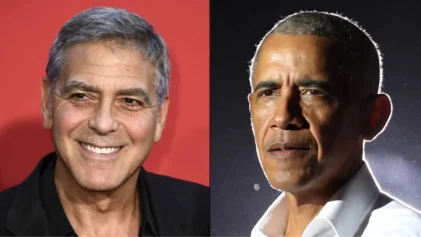Much to the chagrin of Republicans, President Barack Obama used his inauguration address to strike a decidedly liberal, progressive tone — perhaps signaling that he will use his second term to push for key items on the progressive agenda, such as climate change, equal rights for gays, equal pay for women and easier passage to citizenship for immigrants.
To many, Obama’s tone was tougher and less conciliatory than it was four years ago. Of course it remains to be seen if that means he will be more aggressive in pushing a liberal agenda, but if his 18-minute speech was any indication, Republicans probably should gear up for some serious fights in the next four years.
“I think this is one of the most progressive speeches President Obama has ever given,” MSNBC host Ed Schultz said after the address. “I thought there was a real air of confidence brought forth by the president today when he said ‘we are made for this moment.’ He’s ready to move this country forward. It was really one of tremendous vision.”
“Progress does not compel us to settle centuries-old debates about the role of government for all time — but it does require us to act in our time,” he said in the 18-minute address. “For now decisions are upon us, and we cannot afford delay. We cannot mistake absolutism for principle or substitute spectacle for politics or treat name-calling as reasoned debate. We must act.”
Obama became the first president to mention the word “gay” in an inaugural address, putting the push for same-sex marriage on the same level as the quests for racial and gender equality. He also mentioned Stonewall, the site of a famous gay rights riot in 1969 in Greenwich Village, New York.
“Our journey is not complete until our gay brothers and sisters are treated like anyone else under the law,” Obama said to big cheers from the crowd of more than a half million that thronged the mall. “For if we are truly created equal, then surely the love we commit to one another must be equal as well.”
Jonathan Rauch, a guest scholar at the Brookings Institution and author of a book about gay marriage, said it was a huge moment for the gay rights movement.
“Mentioning Stonewall in the same breath as Selma moves us beyond the era of gay rights as special pleading and into the era of full gay integration,” Rauch told NPR. “The fact that he made the theme so prominent tells me that he sees gay equality as a major legacy item, which it will be. He’s gays’ LBJ.”
The president harkened back to the campaign, taking a shot at Mitt Romney’s running mate, Rep. Paul Ryan, who regularly in speeches divided the country into “makers” and “takers.”
“The commitments we make to each other — through Medicare, and Medicaid and Social Security — these things do not sap our initiative; they strengthen us,” the president said. “They do not make us a nation of takers; they free us to take the risks that make this country great.”
And as for immigration reform, the president said the country needed to be more welcoming to immigrants, so that we would see “bright young students and engineers … enlisted in our workforce rather than expelled from our country.”
When Obama, now 51, was about to go back into the Capitol after his speech, he stopped his entourage to turn back toward the cheering crowds on the National Mall.
“I want to take a look, one more time,” he said. “I’m not going to see this again.”
The president’s daughters, Malia and Sasha, appeared to be especially playful yesterday. When the first lady was introduced before the president came onto the stage, Malia, 14, twisted her shoulders back and forth and did a little dance as her mother approached her. At another point she was spotted sneaking up behind her father and yelling, “Boo!” Later, Sasha, 11, used a smartphone to take a picture of her parents kissing in the reviewing stand — then she made them do it again. Both girls bounced with the martial music.
The ceremony presented extraordinary diversity in color and age. The singers included James Taylor, Kelly Clarkson and Beyonce — not to mention the wonderfully diverse Brooklyn Tabernacle Choir — and the speakers included Myrlie Evers-Williams, the widow of Medgar Evers and former president of the NAACP, and the gay poet laureate of Cuban heritage, Richard Blanco, whose poem, “One Today,” focused on the diversity of America.
The benediction was delivered by Rev. Luis Leon, the pastor at St. John’s Church, an Episcopal house of worship near the White House that Obama frequently attends with his family. Leon was born in Guantanamo, Cuba.


